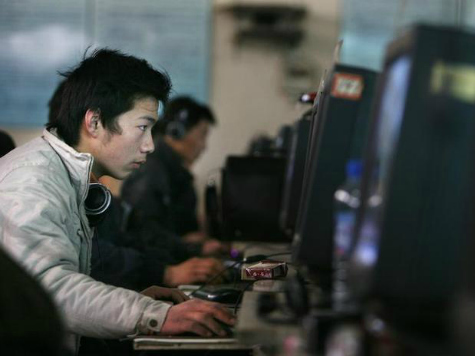Silicon Valley Venture Capitalists funded 321 deals in the first quarter of 2014, up 9% from last year and the highest rate since the peak of 347 in 2007. Despite terrible investment returns in the past, the fastest growing area for VC investments is the Forbidden Kingdom, up 31% this year to $298 million.
Venture capitalist firms threw huge amounts of money at foreign investments during the “Dot.com” boom in the 1990, but after the “tech bubble” burst, many foreign investments imploded. Over the next decade VCs tended to put money to work closer to home.
Although China has been experiencing spectacular growth, VC firms tended to fear the lack of rule of law and the risk of competing with state-owned-enterprises. But Jack Ma, founder and CEO of China based Alibaba internet search engine, spent over a year pounding the pavement in the San Francisco Bay Area before GGV invested in Alibaba in 2003. At the time, the firm was only four years old, with just $20 million in Chinese revenue. Two years later, Yahoo! acquired a 23% stake and the business took off.
Because GGV developed a reputation for working with Chinese Internet startups like Alibaba, the firm developed relationships and did deals with China’s top entrepreneurs–like Lei Jun, who is the founder of the Chinese mobile phone company Xiaomi.
The venture capital business is all about raising money and collecting huge fees. With Alibaba expected to generate $6 billion in revenue and go public with a stock market valuation of $100 billion, GGV raised a $625 million fund last year and has a total of about $800 million of cash in the bank plans to do 5 major deals this year in China.
“VCs hate nothing more than to see an investment they passed on make billions of dollars,” Sam Hamadeh, a venture expert with research firm PrivCo told the San Jose Mercury News. “They kick themselves and then try to make up for it.”
That is why Silicon Valley venture capital investments in China are up 31% this year and up 73% from two years ago, according to data from Dow Jones. “Those who can do it right will be paid handsomely,” said Ben Fu, a venture capitalist with San Francisco-based Next World Capital, according to the Mercury News.
Investing in China hasn’t been this frothy since 2007 when 34 Chinese companies went public on U.S. stock exchanges. Half of those new issues were on the top 100 best performing list for new IPOs that year. U.S. investors also poured tens of billions of dollars into companies listed on China’s Shanghai Stock Exchange during 2007 and 2008.
Chinese stocks got hammered from late 2008 until early 2009, but then rallied back to recover about half their losses by late 2009. “It has been lights out,” as market traders say, for the Shanghai Index, which has relentlessly fallen by -41.6%. During the same period, U.S. stocks rose by over +130%.
Experts are warning venture capitalists and investors about China’s “shaky trust, loose guidance on intellectual property and regulations that prohibit foreign ownership of companies,” the Mercury News notes. But thanks to the excitement of Alibaba’s coming IPO, greed is trumping all common sense. Between January and May of 2013, there was only one Chinese company with an IPO in the U.S.; there are nine this year, and two will try to raise over $1 billion.
“I don’t think everyone and his brother is going to start investing in China tech,” said Hamadeh, according to the Mercury News. “It’s still a communist country; the Internet is still considered like a sector sensitive to national security interests. But if there’s money to be had, the VCs will hold their nose and invest.”
Despite huge losses on past, Silicon Valley venture capitalists are again throwing more of “other people’s money” at investments in China.

COMMENTS
Please let us know if you're having issues with commenting.